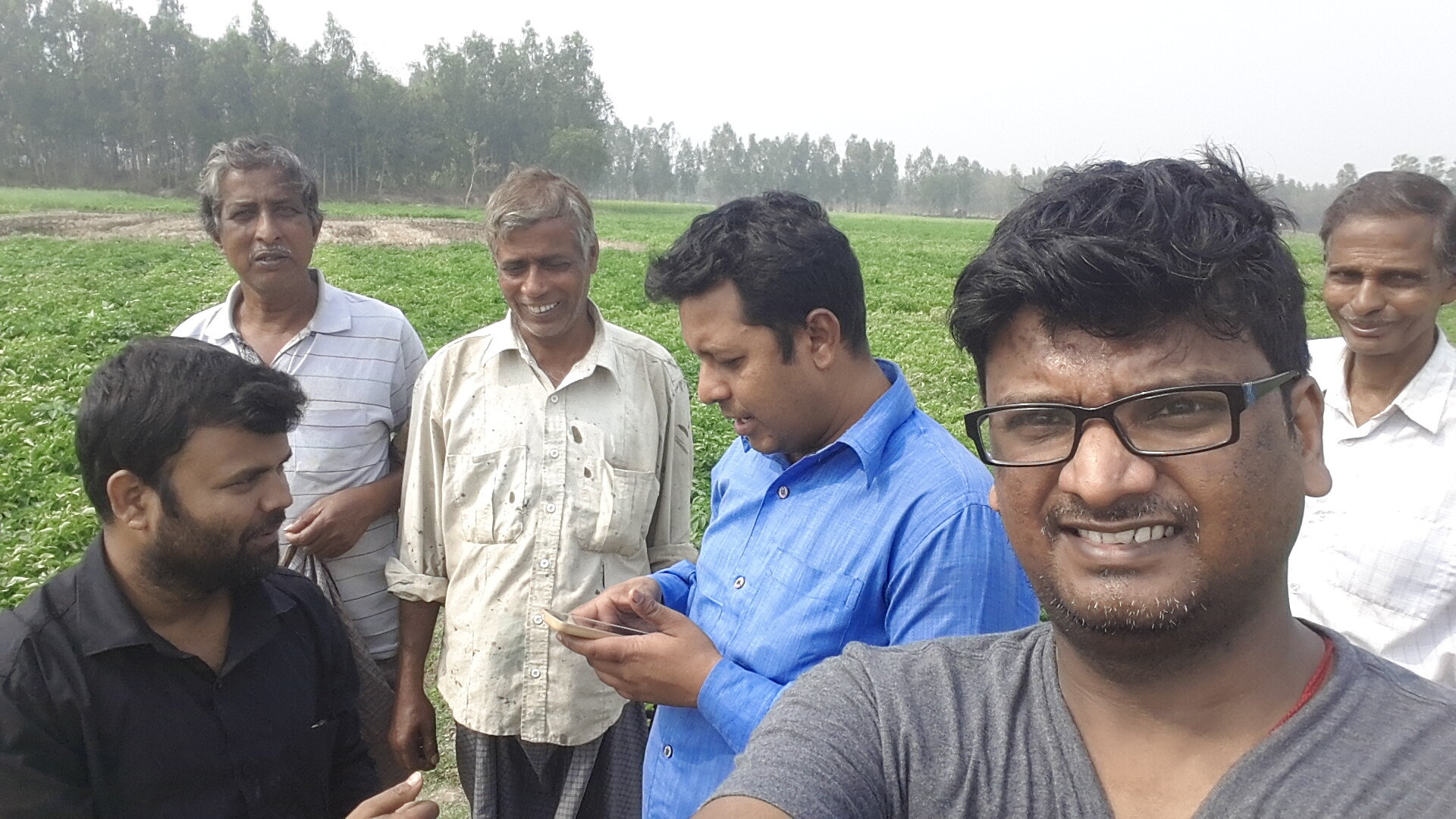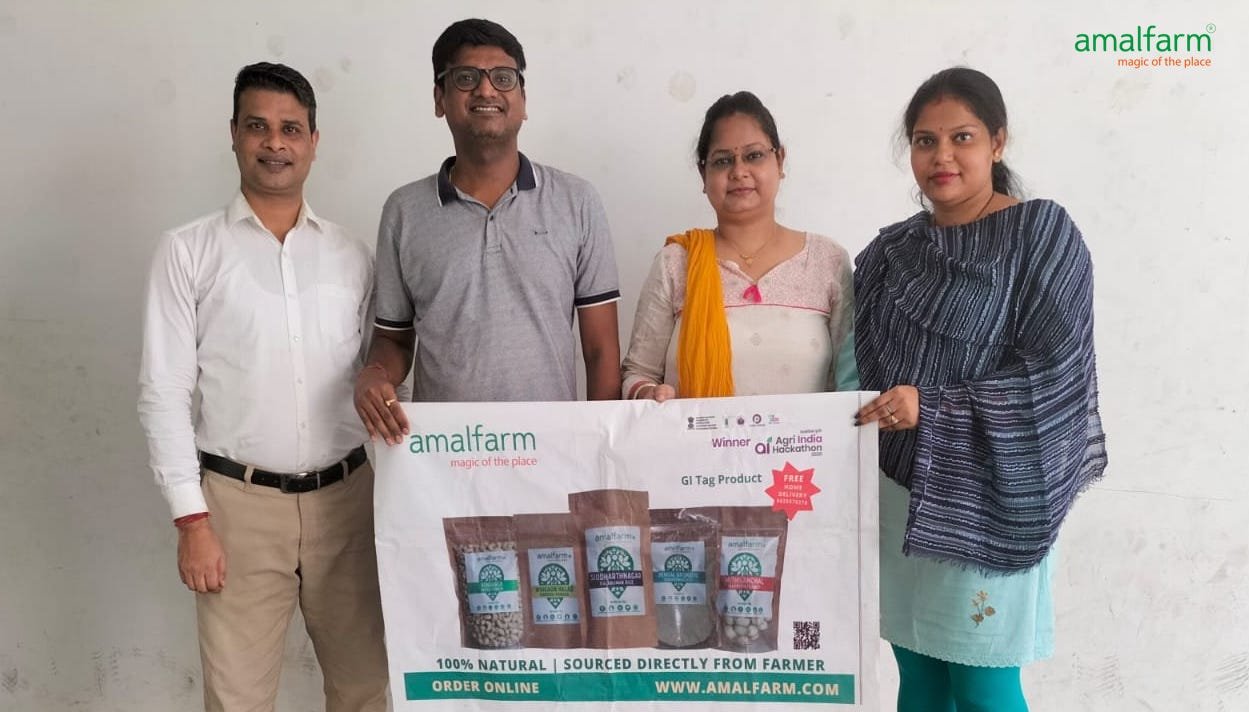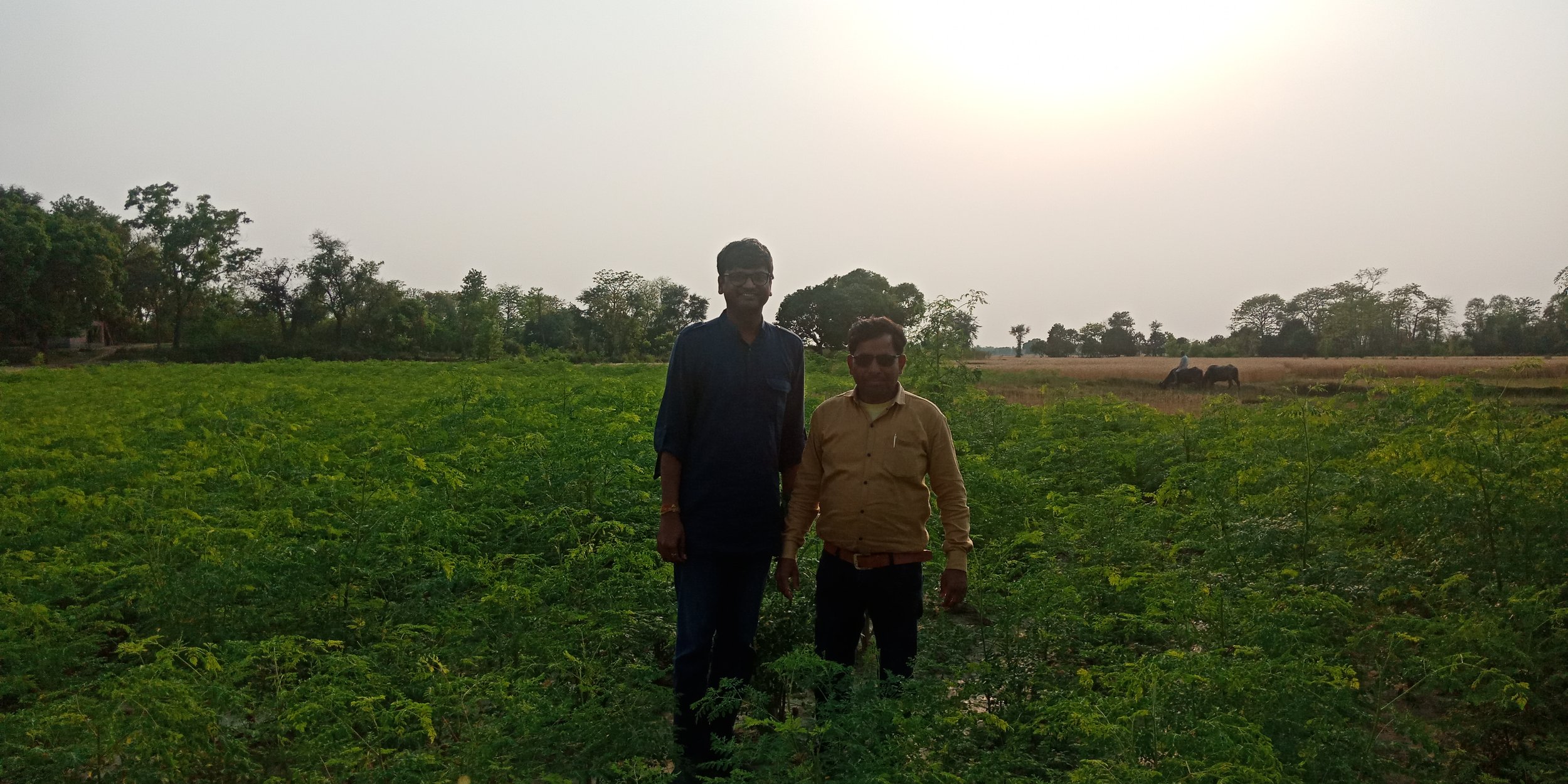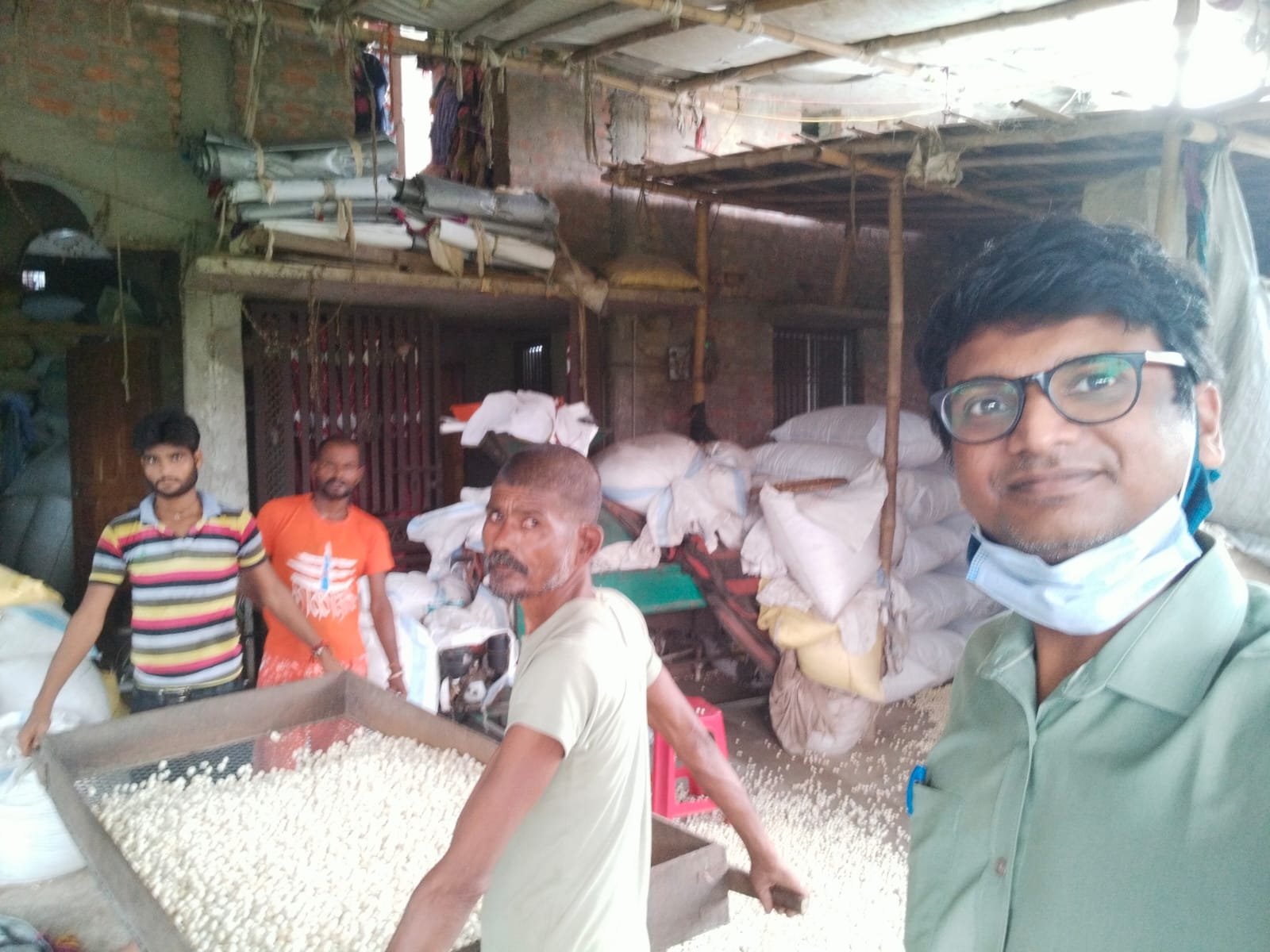Rahul Prakash, Founder of Amalfarm
Do you know exactly where the rice on your dinner plate came from?
Entrepreneur, Rahul Prakash, is on a mission to connect consumers around the world with farmers in India through his company, Amalfarm. In doing so, he aims to improve incomes for farmers while promoting the authenticity of their crops. With the scan of a QR code, you’ll be able to learn the exact location of where your rice was grown.
Amalfarm began as an idea when Rahul witnessed the plight of farmers in India making so little from their crops. With so many middlemen between farmers and consumers, farmers earn a very small percentage of the consumer’s purchase. And it also becomes nearly impossible to trace the origin of those crops to ensure their authenticity and quality.
Through a technology-enabled supply chain network of Geographically Indicated (GI) food products, Amalfarm is able to help increase farmer incomes by 50%. GI crops are able to be traced to a specific geographical origin and possess qualities or a reputation attributable to that origin. Rahul believes that crops that can be traced to specific places represent the culture of those places and the legacy of the communities who grow them.
Amalfarm is one of the early-stage businesses participating in the 2022 Upaya and YSB Accelerator. We were delighted to have a chat with Rahul about what inspired him to start his business and what has been driving him forward on his entrepreneurial journey. Check out our Q&A below!
Q. What inspired you to start Amalfarm?
I come from a very humble place called Motihari in Bihar. Motihari is the place where the first Champaran Satyagraha started, and much of my family was involved in agriculture, so I have seen their plight.
Agriculture in India is growing, but the income of farmers is not growing. The income of the farmers is significantly low. Farmer products are not connected directly to the market. On average, from the farmer to consumer, seven hands are exchanged. So we need to cut down these layers, and directly involve the farmer in the ecosystem to close the gap.
The second thing that inspires me is that we see a lot more medicine stores than grocery stores in our society. Why? Because a lot of people are having health problems coming basically from the contamination in the food. When my daughter was just three years old, she went to a doctor nine times. So I completely changed her food and started looking for healthy nutritional food, and now she is not going that frequently to the doctor anymore. So there is a complete connection between the food we consume and the number of times we go to the doctor.
So that motivated me to work in this field, connecting the farmers and taking authentic food to the consumer.
Q. How do you see your business addressing these problems?
We aspire to track each and every farmer that is growing a Geographical Indications (GI) tag crop. What is a GI tagged crop? It's a product which belongs to a certain place — the origin and characteristic of the product is known. A GI tag crop symbolizes a place — which actually symbolizes a tradition… It symbolizes our Indian culture.
To date, we have over 90 products, so Amalfarm wants to tag all the farmers who are growing such crops to provide a massive dashboard to the world showing that these are the products we hold. This is the legacy we hold. This is the culture we hold, and now we want to trade with the world. We aspire to create such a platform that's impacting the life of farmers directly.
For example, Bengal Gobindobhog rice is the most authentic rice we have, and it has a QR code, which when scanned takes you directly to the farmer who has actually grown it, the latitude and longitude. This is how it helps the consumer to identify where the product is coming from. This is important as it identifies the tradition of the India culture and its deeply rooted societies which are unfortunately going totally obsolete.
Q. Can you tell us a little bit of what you were doing before you became an entrepreneur?
I am a metallurgist. I studied engineering at NIT Jamshedpur and graduated in 2003. I was producing metal standing ahead of a furnace around 1800 degrees Celsius temperature. Then I moved to do an MBA from ICFAI Business School Hyderabad and I spent almost a decade in Hyderabad working with companies such as Timken and Infosys. In Hyderabad, Krishana and I became good friends and he is now the founder of CropIn. In 2015 he told me "Hey, why don't you come and join us?"
CropIn was at a very early stage so I directly plunged into the startup and started working with them. As a SAP consultant, I could have shifted abroad but I continued in India to focus on agriculture. The common thing among us was that we were a bunch of engineers with little experience in agriculture. Our curiosity to explore and learn fast helped us to gain the insights and that was reflected in our product and service. I primarily took the assignment at CropIn to work with technology, aspiring to improve per acre value that can impact millions of farmers.
That time there was no 4G, we used to go to villages and places where there was no network even. I was representing a World Bank funded project run by Jeevika, Bihar, it was a sustainable livelihood adaptation to climate change project. When the World Bank came for reviewing this project, the farmers were so happy as they were not aware of such a program. This was the turning moment for all of us. We witnessed real excitement among women farmers on technology adoption. I could remember the hands of a few farmers shaking while holding the new smartphones. There was a lot to learn from them and that helped us scale up
Q. What triggered you to jump into setting up your own enterprise?
I was already into that startup mood when I took an exit from CropIn. For agritech startups like CropIn, technology is the core product, but our core lies in physical products like rice. I had decided that, rather than going into technology, I should directly impact the life of the farmer. Technology is just an enabler. This has helped me to directly impact through the product which makes sense to the farmers because at the end of the day, I'm giving business to the farmer, and I'm not selling anything to the farmer.
Q. What kind of impact do you want to have on farmer’s lives?
Livelihood impact is a full circle kind of thing. Livelihood impact could be giving their kids better access to education or it could be giving them better access to the medicine. If we have the database of all the farmers and we interact day in and day out, we can actually make their problem ours because it is our business. Yes, we are also into agriculture, but ultimately they are also human beings. So we need to take a holistic approach that can impact their life.
Q. How has Amalfarm impacted the farmers you work with so far?
In GIs, we are one of the first companies that have registered some of the Gobindobhog rice farmers as an authorized user on the platform. When the farmers saw it, we could see tears in their eyes while reading this information. "Oh, I see my name on the dashboard of the Government of India portal." It's a big thing for them. Now they proudly show their name to everyone, so it was a very touching moment for me that even 12 months from the inception of my company, at least I have done something for them, which they will remember.
Q. You've been an entrepreneur for a little over a year now. How would you talk about your experience so far as an entrepreneur?
It's a very exciting journey. It is completely fun loving and enriching. Last one year, by the grace of God and all my family members and friends, we have seen phenomenal growth. Two months after our inception, we won the India Hackathon Championship by ICAR PUSA. After that we were incubated in ICAR PUSA and then we got incubated at AIC Bimtech last year. This year we won the FICCI Agri StartUp Award and it was also the first prize we received for impacting rural lives and then we were chosen for the Upaya accelerator. So a lot of things have happened in this journey and it has been phenomenal.
Q. On the flipside, what has been your biggest challenge so far?
The first challenge that I faced is convincing the farmers to do business with us. They have been cheated again and again, it is not their fault. I'm suddenly going and talking to farmers and asking if they want to do business with us. It's very difficult to convince them.
Second part is arranging the funds when you need it the most because you are running two homes together - one is the company and the other is your own home.
Q. When you're facing any challenges or roadblocks, what motivates you to continue going?
I always look ahead for 60 days. I don't know what will happen after the 62nd day or the 68th day, but I know that I have a runway for 60 days. So first let's consume these 60 days and after that I will create a runway for another 60 days. This is how I got confidence to overcome these hiccups.
Q. What keeps you up at night?
Everyday I know that tomorrow I'm going to impact the life of many farmers and the number is increasing. So now I'm restless because of COVID as I could not go and meet the farmers and I want to dedicate my life to solving the farmer problem.
What piece of advice would you give a new entrepreneur?
Make a plan, and take your time. But once you have made a plan, don't look back. Setting up the plan can take three months, three years or even 10 years, but once you have set that plan don't look back, because those who look back… they do not create history.


















The Tribal Hermit is a social impact venture that works closely with 130+ Dhokra craft artisans from Kondagaon, Bastar, and Raigarh districts of Chhattisgarh to design, create, and sell their products.